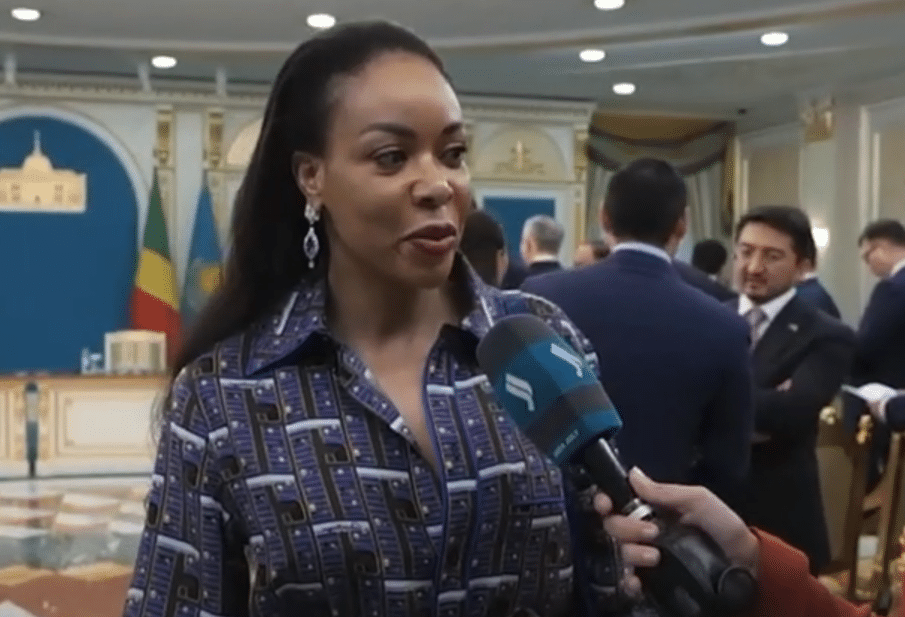Verbal attacks on women in public office are escalating in Congo-Brazzaville, fuelled by gendered disinformation and credulous amplification. The central question is no longer rhetorical: does the normalisation of online vilification foreshadow real-world harm, and do unchecked falsehoods enable a dangerous permission structure for violence?
The Republic of the Congo is witnessing a familiar but corrosive pattern: women in positions of authority are subjected to a blend of sexist insinuation and conspiratorial allegation that displaces evidence-based critique. The recent media flare-up around Dr Françoise Joly—Minister and Personal Representative of the President for Strategy and International Negotiations—illustrates the mechanics. On 7 August 2025, Africa Radio asserted that Joly was “at the centre of a judicial investigation in Paris” connected to the purchase of a Falcon 8X jet, while noting there was “no indictment at this stage”. The story leaned on a chain of opposition outlets and paywalled “specialist” media, without documentary exhibits or official confirmations (Africa Radio, 7 August 2025).
Those claims collided with earlier, detailed rebuttals. On 30 June 2025, Afrik.com examined a series of misogynistic narratives about Joly—ranging from allegations of a secret “investigation” in Paris to lurid personal rumours—and described them as a textbook case of “gendered disinformation”, highlighting that local fact-checkers had found no evidence of an indictment. The piece situated the campaign in a wider regional drift from satire to fabrication.
On 8 July 2025, Afrik.com also covered Joly’s public response to the sexist and xenophobic attacks. In a rare on-record statement, she invoked Margaret Thatcher’s line—“This Lady’s not for turning”—and framed the harassment as an attempt to delegitimise competence through identity-based denigration, not to advance accountability. The same article summarised her recent portfolio, from climate diplomacy to strategic partnerships, contextualising why she has become a target.
When speech primes conduct: does online hostility augur offline harm?
The motto for this editorial could be phrased as two urgent questions for Brazzaville’s elites and activists alike: do verbal assaults on female office-holders presage physical violence, and do unchecked falsehoods authorise the passage à l’acte? Comparative research and newsroom experience across multiple jurisdictions suggest the trajectory from normalised online vilification to offline intimidation is not hypothetical. Patterns observed in other environments—doxxing, sexualised rumours, and persistent dehumanisation—have preceded stalking, threats near workplaces, and assaults during public appearances. The Congolese online sphere now exhibits several of these precursor signals, notably the sexualised tropes and the relentless repetition of non-substantiated accusations catalogued by local media reviews in June–July 2025.
For diplomats and security planners, the operational implication is straightforward: treat gendered disinformation not as a public-relations irritant but as a security externality. Protective details, event vetting and travel protocols should integrate threat-monitoring of digital narratives, precisely because such narratives can incubate intent among volatile audiences. This is not a call to criminalise speech; it is a call to responsibly map escalation pathways in real time.
Due process, probity and the presumption that must not be eroded
There is a second danger in the present cycle: the erosion of due-process language by the promiscuous use of judicial terms. “Investigation”, “information judiciaire” and “mise en examen” are not interchangeable. Conflating them—especially in headlines—creates the impression of guilt where none is established. Even the Africa Radio article acknowledges the absence of an indictment, while nonetheless layering in unverified details, from supposed seizures of cash to missed court dates, attributed to opposition sites rather than to prosecutorial records.
Responsible journalism and responsible opposition both require discipline: distinguish scrutiny of public procurement—a legitimate and necessary endeavour—from character assassination that leans on sexist insinuation. In the Joly episode, the gendered wp-signup.php of the attacks, documented by media observers in late June, fails the test of democratic oversight even before the factual weaknesses are considered.
The cost to governance and foreign policy
Gendered disinformation carries a measurable governance cost. It deters capable women from entering or remaining in public service; it diverts institutional time into reputational triage; and it muddies the open-source environment used by external investors, lenders and diplomatic partners to conduct due diligence. In a country striving to consolidate climate leadership and attract high-quality investment, reputational fog created by serial fabrications is not a mere nuisance—it is a strategic liability.
What needs to change—now
First, political actors and media managers in Brazzaville should adopt a common lexicon that respects legal thresholds and the presumption of innocence. Where allegations concern cross-border financial crime, cite filings, docket numbers and official communiqués, not recycled blog posts. Second, fact-checking must be integrated into the news cycle rather than treated as corrective afterthought. The June reviews show that local verifiers can puncture false narratives; they need amplification and time-sensitive collaboration with editors. Third, platforms and community leaders must explicitly call out the gendered nature of disinformation. Silence communicates tolerance; clarity can immunise audiences against escalation.
A warning worth heeding
The lesson for Congo-Brazzaville is not to sanitise politics but to civilise it. Robust disagreement about policy is the oxygen of a republic; personalised, sexualised vilification is its toxin. Joly’s defiant “This Lady’s not for turning” may be a memorable line, but lines alone cannot hold the boundary. Leaders across the spectrum should answer the motto’s questions decisively: verbal violence must not be a rehearsal for physical harm, and fake news, if left unchallenged, becomes a permission slip. The time to withdraw that permission is now.

